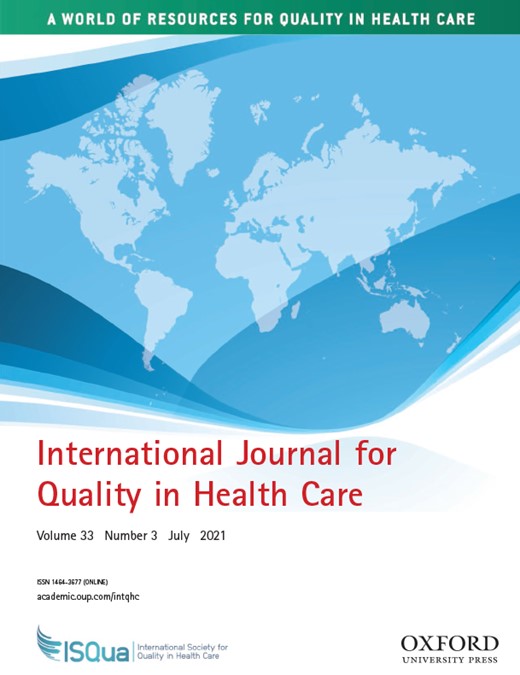-
PDF
- Split View
-
Views
-
Cite
Cite
Paolo T Pianosi, Quo Vadis? Face-to-face visits, International Journal for Quality in Health Care, Volume 33, Issue 3, 2021, mzab115, https://doi.org/10.1093/intqhc/mzab115
Close - Share Icon Share
Although 2020 is now behind us, its legacy remains, a consequence of which is the modus operandi in clinical practice ushered in by calamity. This prompts reflection on humanism in the practice of medicine—something which I fear was lost amid this pandemic. The question ‘what will the new normal be?’ has been raised; indeed, it has been suggested that we may substitute virtual visits for face-to-face encounters. One must therefore ask whether outcomes differ between e-visit and face-to-face visit? Outcomes are paramount and even fashionable today and have become the mantra of modern medical practice—evidence-based medicine being the current zeitgeist. I submit that we must not abandon the quintessential act that separates healer from practitioner. The act of treating our patients involves, no ‘requires’, a relationship with an individual. Osler recognized this in ‘Aequanimitas’ [1]: ‘a clear knowledge of our relation to our fellow-creatures and to the work of life is also indispensable…an ever-tender charity toward these fellow-creatures; you may, in the growing winters, glean a little of that wisdom which is pure, peaceable, gentle, full of mercy and good fruits, without partiality and without hypocrisy’.
The doctor–patient relationship prior to the new millennium characterized the patient as a passive recipient of the physician-oracle’s recommendations. Post-modern practice has evolved to become less paternalistic, more patient-centered, serving an autonomous maven. At the same time, the unstoppable progress of scientific inquiry has profoundly improved our ability to prevent disease, treat it more effectively when it rears its ugly head, prolong life, or ameliorate its quality. The momentum created by this juggernaut of discovery paradoxically renders us vulnerable to another consequence of our humanity—hubris. How do we as physicians approach the internet-savvy patient who already has answers and merely seeks a technical advisor? More importantly, how do we treat the incurable, inoperable, or terminal patient when our accrued wealth of knowledge and experience cannot assuage a patient with illness and ‘dis’-ease? Our riposte should be the antithesis of hubris—humility. Humility must embody the imperturbability described by Osler but simultaneously convey empathy and ‘agapé’ (ἀγάπη). We achieve this via the gift we have been granted as physicians to invade the privacy of patients, offer hope and fulfill their wishes by alleviating suffering. Saints Cosmas and Damian were no more able than you or me to treat the incurable, but their victory and their legacy were that they were nonetheless healers, comforting patients even when the inevitable was tacitly known. Their continued veneration is a testament to their devotion.
The art of medicine is tantamount to the gift of healing. As such, eye contact and touch, even with a gloved hand, are an inseparable part of our practice and not amenable to virtual visits. Some might consider this an anachronistic view. Just as the medium is the message [2], the face-to-face visit expands our ability to perceive the patient’s world (definition of empathy) to an extent not otherwise possible. The desire for face-to-face interaction and mistrust of virtual consultation are cited by many patients as reasons not to use these services [3, 4]. Trust is seminal as it relates directly to patient satisfaction and perceived quality of health-care services in terms of better adherence to prescribed medication and medical advice [5]. Evidence is emerging from primary care of the importance of the doctor–patient relationship on outcomes [6]. For reductionist thinkers who subscribe to the Cartesian notion of mind–body duality, there is also teleologic evidence that we are hard-wired for the experience of empathy by at least two mechanisms [7] and this is part of the therapeutic relationship. Continued cultivation of this budding affirmation is challenging since not everything that matters can be measured and not everything that can be measured matters. For those evidence-based enthusiasts, I lay down a gauntlet: ought we not demonstrate benefit (other than economic) and beneficence ‘before’ wider adoption of virtual visits?
I deplore rounds from the conference room, as Mission Control in Houston monitored Apollo 13. The latter situation was of necessity, but ours need not be so. There is a role for telemedicine to connect with patients in remote locations: prompt recognition and treatment of stroke or acute myocardial infarction, sometimes half a world away, result in improved outcomes. Nevertheless, telemedicine should not become a vehicle to supplant in-person care. We cannot forsake that which makes us healers as well as scientists. We cannot be healers without this foundation. That our ability to manage patients improves with experiential growth is undeniable; but let us embrace what distinguishes us as physicians and elevates us as healers—reaching out, donning personal protective equipment, if necessary, to our patients with empathy and ‘agapé’, bridging the gap in service of others. Let us not forsake our humanity for expediency. The secret to this job is personal relationship [8].
Funding
None declared.



